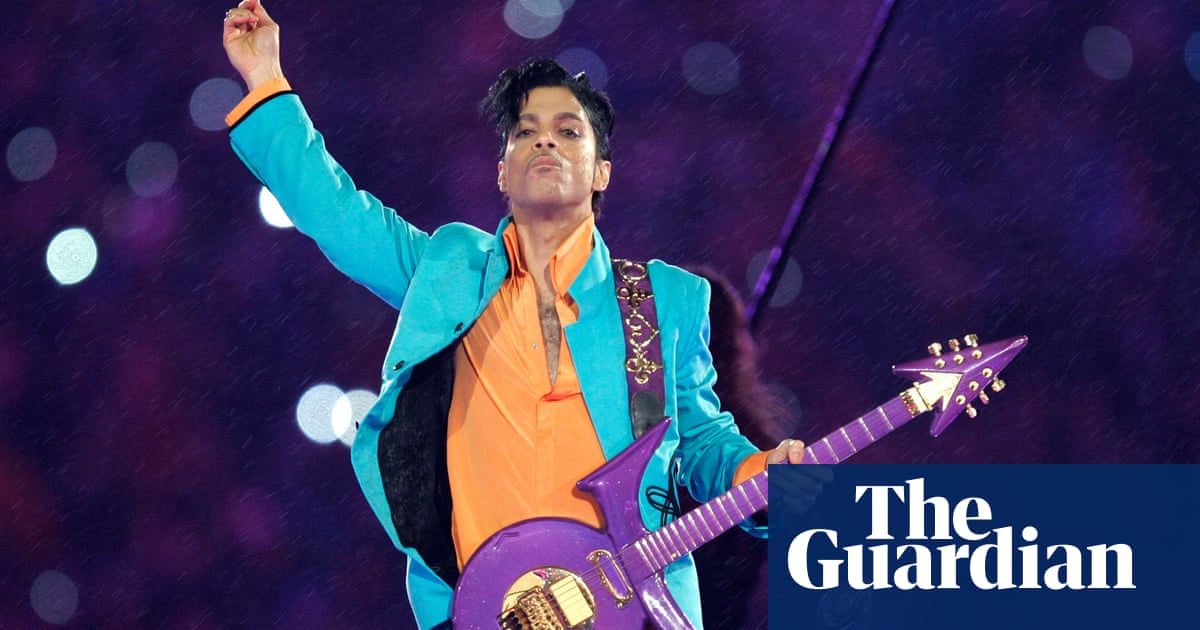It can be a painful thing, acknowledging that our heroes are both human and flawed, but Ezra Edelman spent five years doing just that. The film-maker behind 2016’s sprawling, Oscar-winningOJ: Made in America, was at work for Netflix on what, by all accounts, would have been the definitive Prince documentary: a nine-hour behemoth drawing upon dozens of interviews with the late icon’s associates and rare access to his personal archive.
The film – according to the few who’ve seen a rough cut – built a layered portrait of Prince’s immense genius and complexities, including a darker side concealed by his playfully eccentric persona: his allegedly cruel treatment of girlfriends and female proteges; his demanding ruthlessness as a bandleader. “We’re asked to sit with Prince’s multiplying paradoxes for many hours, allowing them to unsettle one another,”wrote Sasha Weiss, of the New York Times Magazine, after viewing it.
We won’t, unfortunately, get that opportunity. In February,Netflix scrappedEdelman’s documentary after executors of Prince’s estate,reportedly upset by its content, fought for months to block its release. The streaming platform plans to develop “a new documentary featuring exclusive content from Prince’s archive.” In other words: a watered-down take, to placate the powers that be.
This dispiriting saga reveals much about the bleak state of the celebrity documentary complex in 2025: they are plentiful on streaming platforms yet increasingly indistinguishable from sponsored content. In raw numbers,documentaries are more popular than ever, but they also feel more toothless and risk-averse. Netflix’s capitulation lays it all out in the open, reflecting a climate in which dull, sanitised celebrity docs flood the marketplace while distributors balk at complicated and/or unauthorised films providing complex portraits of their subjects.
The Book of Prince frightened Prince’s estate because they couldn’t control it. But some of the most compelling music docs in recent memory are animated by singular directorial perspectives, not transactional access. That includes Questlove’s fascinatingSly Lives!, which uses the rise and fall of enigmatic funk legend Sly Stone as a vehicle to explore cultural pressures on Black pop stars. By comparison, the band-authorisedBecoming Led Zeppelinfeels like a work of sheer legacy-minded mythmaking. The performance footage is electric, but interviews with the surviving members steer away from squirmy subjects,like plagiarism chargesor underage groupies; complicating wrinkles are smoothed over.
There’s a blurring line between journalism and PR fluff in documentaries lately.It is increasingly commonfor celebrities to produce, or play a significant behind-the-scenes role, in documentaries about themselves. If the gold standard for this category is Beyoncé’s concert films, then Netflix’sHarry & Meghan, a six-hour exercise in brand management, made with their own production company, may represent the nadir. AsEdelman put it, viewers are “being served slop”.
In 2020, Hulu released a four-partseries on Hillary Clinton, obscuring the fact thatClinton had chosen the production companyand had input over the editing process. Similarly, Taylor Swift selected the director of 2020 documentary Miss Americana, a fitfully revealing glimpse behind the scenes of the Swift empire, then went on to make 2023’s massively successfulEras Tour moviethrough her own production company.
The problem isn’t that such films exist; it’s that they suck up all the oxygen – and money – from documentary distribution. In recent years, streaming services have filled up with docs about beloved celebrities, some quite worthwhile (2020’sZappa, 2021’sTina), others blandly reverential (Albert Brooks: Defending My Life,Thank You, Goodnight: The Bon Jovi Story).
Entertainment companies gobble up fawning documentaries about public figures, but won’t touch anything controversial. Consider thatLeaving Neverland, HBO’s bombshell 2019 film investigating child abuse allegations against Michael Jackson, has effectively disappeared. It was permanently removed from Max after a lawsuit from Jackson’s estate – a troubling omen,as Slate’s Sam Adams argues, “at a time when media access is under the near-total control of streaming conglomerates”. (A sequel, Leaving Neverland 2,hit YouTube recentlyto minimal fanfare.)
A similar dynamic threatens to spread to the literary world. Last year, the influential rap group De La Souldenounced a book about themby music journalist Marcus J Moore and claimed to be “exploring all of our legal options”. In a higher-profile case, Meta recently sued to block promotion of a tell-all memoir from a former employee,an effort that backfired deliciously. It will be an impoverished world where authors fear to publish unauthorised biographies because they can’t afford to be sued by the subject.
The corporate culture of capitulation has only worsened since Trump’s re-election. In December, ABC Newsagreed to pay$15m to settle what some consider a frivolous lawsuit from Trump. In April, the executive producer of60 Minutes resigned, saying his journalistic integrity had been compromised by corporate higher-ups, who have been considering their own Trump settlement.
Sign up toFilm Weekly
Take a front seat at the cinema with our weekly email filled with all the latest news and all the movie action that matters
after newsletter promotion
No wonder film companies fear releasing anything that might upset the tweeter-in-chief. Consider that last year’s sleazily gripping Trump biopicThe Apprenticestruggled to find a domestic distributor until a small company, Briarcliff Entertainment, stepped in. (Briarcliff’s founder arguedthat the bigger studios had spurned it “strictly based on cowardice”.) Consider, too, that the remarkable documentaryNo Other Land, which won an Oscar for its wrenching depiction of Palestinian life in the occupied West Bank,still doesn’t havea proper US distributor.
Meanwhile, Amazon Prime (whose parent company recently donated to Trump’s inauguration, which its CEO Jeff Bezos personally attended) isspending $40m to make a Melania Trump vanity documentary, from which the first ladywill reportedly profit. Projects like that are closer to propaganda than journalism, and this one’s being bankrolled and legitimised by one of the largest and most powerful streaming companies in the entertainment industry.
Documentaries ought to challenge and hold power to account more than they flatter. Instead, in a landscape where a few streaming companies owned or run by billionaires dominate the documentary market in the US, viewers are paying the price.
